- Home
- Brian Lumley
Khai of Khem Page 7
Khai of Khem Read online
Page 7
No sooner had the elephants passed the dais of the dignitaries than Khasathut’s archers appeared, jogging in ranks of ten immediately in the wake of the beasts. Following the bowmen—who numbered no less than fifteen hundred—came the infantry, rank upon rank of them, all in tens. Sixty thousand men of Khem and thirty thousand from neighboring Syra, Arabba, Therae, Daraaf and Siwad trotted by in strict military precision; and indeed their numbers were such that they took almost an hour to pass. And each and every man of them carried a bronze sword and a shield of hide patterned with bronze studs.
Kush and Nubia were the only absentees; for while certainly there were Kushites among the Pharaoh’s slaves, no man of Kush would ever volunteer to become a mercenary in Khasathut’s army. No, rather death than that. The Kushites were wild and wilful, hill-dwellers in the main who preferred the freedom of the heights to the lowlands and the oppression of Khasathut’s border patrols and his Arabban slavers. The God-king had sworn that one day he would see Kush overrun and crushed, but until that day he would have to be satisfied with his few Kushite slaves. And even the children of such were unruly and unreliable, and certainly they could never be trained for military service—not in the Pharaoh’s army, at least.
As for Nubia: Pharaoh had his Black Guard, but none of them were of good birth. They were all the sons of slaves, chosen for their size and trained from birth to attend Pharaoh’s every whim. If he so much as snapped his fingers in command, each and every last one of them would fling himself from the plateau. He was also supposed to have five thousand trained warriors—an impi of terrific fighting prowess—but these had been withdrawn by their king in Nubia six months ago (ostensibly to be trained in the jungles of their homeland) and their return was already overdue.
So the parade passed. The infantry was followed by a thousand specialist spearsmen and seven hundred marksmen with their slings; and finally there came the generals five-square: twenty-five massive military commanders, all carrying their individual banners of nation and regiment, pausing en-masse where Khasathut could see them from on high. They dipped their colors low three times before him, and in return he held out his left arm over them, saluting them. Then they snapped to attention and turned to follow the army along the base of the great ramp.
All of these men—well over one hundred thousand of them—and the elephants, too, they had all been mustered unseen to the west of the great pyramid, in the hugely sprawling barracks that housed them when they were not maneuvering. But now the military side of the day was almost done. Now there only remained the Choosing of the Brides, and finally the presentation to the Pharaoh of all personages of note. Then all would be done except for the feasting and drinking, by which time Khasathut would have retreated back into the pyramid’s secret ways with his new wives.
By then, too, the Ibizins would have returned home, preferring to celebrate in the privacy of their own splendid house near the East Wall. Harsin Ben did not yet know it, but on this occasion he would have precious little to celebrate. . . .
III
THE GOD-KING COMMANDS
As soon as Pharaoh drew back from the lip of his aerie and passed out of view, then the common folk of Asorbes began to disperse and drift away from the vast central plaza of the great pyramid; for them the show was over. A few minutes passed while the crowd thinned, during which time a large number of hugely-muscled, freshly-scrubbed and cleanly-robed slaves assembled in pairs from the neighboring streets carrying litters of light, ornately woven reed. A third slave bearing a large fan made up each litter’s complement.
As the families of the city’s dignitaries stepped down from their dais, so they were taken up one by one into the litters and borne up a great flight of steps that climbed the side of the ramp from its base to the rim of the plateau. When each personage had been safely deposited atop that man-made mountain, then his bearers would take up their empty litter and trot with it down the long ramp, so that soon a line of them could be seen scurrying like so many ants down the length of the elevated roadway.
Simultaneous with this activity, a string of specially canopied litters was being borne by the broad steps, and within the silk walls of these carrying-chairs were those girls whose beauty had been noted by Pharaoh’s scouts during the preceding quarter. These were the twenty from which Khasathut would choose his three brides-to-be.
The Ibizins, too, stepped down from the dais and into their litters to be carried up the great stairway; and Khai, gazing out over the city as he was lifted ever higher, grew dizzy with the view and wondered how his mother fared, who shunned heights and dreaded what seemed to her an all-too-regular nightmare. At last, however, the entire family stood among dozens of friends on the plateau itself; and when the last of the lesser dignitaries—rich merchants, river-lords, foreign diplomats and governors of one sort or another—were safely brought up, then there came the ceremony of the Choosing of the Brides.
Seated upon his massive throne in the shadow of the towering wall behind him, Khasathut nodded as each of the twenty girls was paraded before him, and on three occasions he lifted up his right hand to signify that this particular girl pleased him greatly. Each of the three girls thus chosen went forward in turn, kneeled and kissed the jewel-encased feet of their husband to be, the God-king himself.
By now Khai had come to realize that Pharaoh was not necessarily the huge figure of a man he had thought him, for on closer inspection it could plainly be seen that his outward appearance was merely a facade, a manlike construction behind which the true Pharaoh discreetly avoided the doubtless corrupting gaze of merely mortal men. This was of course as it should be, for Pharaoh was no common man upon whom any other might look whenever he desired. Indeed, it was rumored among the more ignorant of his subjects that Khasathut’s beauty was such as to blind any commoner who might catch sight of him unawares.
Now, as his three newly-chosen brides were led away into the pyramid through a massive arched entrance that loomed behind him—from which they would nevermore step forth into the sight of common folk—Pharaoh called to his Vizier, Anulep the high-priest, and bade him draw closer. Anulep, who until now had stood to one side with his arms folded across his chest, answered Pharaoh’s call by falling to all fours, crawling to him and putting his head between his jeweled feet.
“Up, Anulep,” Khasathut commanded. “Bring to me the first of my Lords that I may know them again. And bring them before me for my blessing, each in his turn with his family, that they may share equally in that glory which is mine alone to bestow.”
As Anulep rose and approached the assembled dignitaries and their families, Khai stared at him in awe and amazement—and with something very much akin to fear or at least apprehension. The man was spectrally pale, tall and gaunt, with a long scrawny neck and a face and head utterly naked of hair. He looked like nothing so much as a vulture in human form, or at best a gray and ghastly Theraen embalmer; and Khai found himself wondering if the Vizier ever had grown eyebrows or eyelashes at all, or if he simply shaved them off each morning. From the look of the polished dome of his head, hair certainly had not grown there for many years.
Moreover, when Anulep smiled at the nobles and officials as he invited them to step forward, it could plainly be seen that he was toothless. These peculiarities or anomalies in the Vizier’s physical appearance were only accentuated by his dress: a tubelike, almost funereal sleeve of black cloth which covered him from shoulders to feet, leaving his spindly arms bare except for wide golden bands clasped above his elbows. All taken into account, Khai believed that he never before had seen anyone looking so completely repulsive.
The first dignitary to be called forward was a Nubian diplomat who was due shortly to return to his homeland in the south. Relations with Nubia were cool at best, but diplomatic channels still functioned. Almost as tall as Anulep, the black official was well proportioned and endowed with a crest of frizzy hair which he wore like a crown. His bearing was proud, his robe a brilliant crimson, and in his nose
he wore a huge diamond. He approached Pharaoh and stood before him at a discreet distance, then went gracefully to his knees and bowed his head.
“Up, black Lord,” commanded Pharaoh in a voice which Khai found at once awesome and inhuman. It was an almost mechanical voice, loud as an echo in a vault, each word uttered with a whoosh reminiscent of the smelter’s bellows, so that Khai thought that Khasathut’s lungs must be made of leather and his throat of copper. Perhaps he really did fill his vast outer case after all!
As the Nubian rose effortlessly to his feet, so Pharaoh spoke to him again. “I see you are alone. Did your wife fear to cross Nubia’s borders? Does she not know that Pharaoh protects his guests?”
“Most high Son of Re, of Heaven itself,” the black ambassador answered, calm and completely unruffled. “Such are my duties that I deemed it unwise to take a wife. A traveler in distant lands and places cannot be a father to his children, and as a representative of king and country I am—”
“A dutiful man,” Khasathut cut him short, “—if a trifle long-winded. Yes, I can see that. Very well, you may go. Convey my compliments to the young king. Perhaps N’jakka would deign to visit me in person one day? Perhaps, too, he will bring me back my impi?”
“The affairs of a king, Omnipotent One, are—”
“I know, I know!” Pharaoh testily boomed. “And what of the affairs of a God-king? Do you think they are any less? No matter. Perhaps one day I might order N’jakka to attend me. . . .” He let the threat hang in the air for a moment, then dismissed the ambassador with the merest twitch of his hand. “Go now—go!” he said, and turned his great face slowly away from him.
This was a bad start and the forty or so remaining dignitaries were immediately apprehensive; but as the audiences continued and Pharaoh appeared to regain his humor, so they began to relax. Khasathut next spoke to a hooded Theraen priest of Anubis, called to Asorbes to attend to the ritual interment of a deceased official; then to an aging governor of Peh-il, a southern river town; until at last Harsin Ben Ibizin and his family were called forward. All five took up positions at a respectful distance and the children dutifully waited until their parents kneeled and bowed their heads before they also prostrated themselves before the God-king.
“Up, all,” commanded the Pharaoh in that awe-inspiring voice, and the younger Ibizins were quick to be on their feet and offering assistance to their elders.
“Harsin Ben,” the Pharaoh continued after a long moment of silence, during which his great carved head ponderously scanned the five, “Re has blessed me with an architect of matchless skill, and he has blessed you with a family of rare and radiant beauty. You have one son who is fine, strong and clever—who studies, I believe, the science of numbers and assists you in your structural calculations?—and another whose appearance I find strangely becoming. The boy is not an albino?”
“No, Descended from the Sky, his coloring is natural,” Harsin Ben answered.
“And yet unnatural to the point of beautiful,” Khasathut commented; and his great head angled toward Khai. “Come forward, boy.”
“Go to him,” Harsin Ben hoarsely whispered. “Go now—hurry!”
Trembling, Khai stepped quickly forward, prostrated himself and placed his forehead between Pharaoh’s feet.
“Up,” Pharaoh commanded, and Khai obeyed. He stood up and gazed wide-eyed at the great carven face before and above him. Shaded as he and the figure of the Pharaoh were by the as yet incomplete crest of the pyramid, the boy was able to look upon Pharaoh without being dazzled by the glittering face-mask and jewel-crusted body-structure. Behind the eyeholes cut in the facemask, he could now make out the moist glint of real eyes, wide and staring, which seemed to regard him with a hideous intentness.
“What do you do, boy?” asked the Pharaoh, and the boom and whoosh of his voice made Khai jump.
“I . . . I go to school, Omnipotent One.”
The great head nodded. “Of course you do. And what would you like to do?”
“I would be an archer in your army, Descended from the Sky,” Khai answered without hesitation, regaining something of his composure.
“Ah? Good! Then you shall practice at least one day in five. That will be arranged.” The great head lifted and looked beyond Khai. “Harsin Ben, come forward and bring your daughter.”
The old man and his daughter obeyed, began to prostrate themselves alongside Khai until Pharaoh stopped them. “No, do not get down,” he said. And now his huge head moved to gaze at Namisha.
Khai’s sister was dressed in a long, pure white chemise cut away to reveal her small, pert left breast; but with her hair in ropes, for all that she felt like a woman of the world, still she looked more like a girl of fourteen than a young woman of seventeen years.
“Harsin Ben,” came Pharaoh’s voice again, but lower this time and thoughtful. “This daughter of yours is lovely. In four more years, she should be given the chance to become a royal bride!”
Namisha gasped and staggered a little as if she were suddenly giddy, and her father could not stop his hand from flying to his mouth.
“Pharaoh—” he stumbled over his words, “Re on Earth—I don’t—I can’t—”
“Do not thank me,” Khasathut checked him. “Merely ensure that she comes to me unsullied. As for the boy: let him practice his archery and we will see. But in four years, then both of them come to me.”
“Namisha . . . and the boy, Omnipotent One? But—”
“Yes, yes,” Pharaoh nodded, “the boy, too. There are duties for just such a boy in the pyramid. You have built my house and tomb, Harsin Ben, and is it not fitting that your son shall dwell therein with me? My Vizier, Anulep, has served me well for many years. Perhaps the time draws near when he should groom another for his work. . . .”
“Descended from the Sky,” Harsin Ben started again with a groan he could hardly suppress, “I—”
“You are overwhelmed, I know,” the great head nodded. “But I will hear no more of it. It is decided. You may go.”
IV
THE ARCHITECT’S
APPRENTICE
The pall of gloom which fell over the Ibizin household from that time onward was almost tangible in its intensity. While Khai could not quite understand it, he could nevertheless trace its source back directly to the day of the Pharaoh’s parade; and on several occasions when he came across his mother and father in the rooms of their house or in its grounds talking worriedly and in low tones, he would hear Khasathut’s name mentioned and know that indeed Pharaoh was the root cause of the mysterious misery.
Namisha, withdrawing into herself completely, became almost a ghost in a matter of months. This was partly of her own volition, her reaction to Khasathut’s awful interest in her, but in the main it was her poor father’s doing; for he dared not disobey Pharaoh’s commands, whose spies were everywhere and would certainly report any divergence from his instructions. That was why Harsin Ben had assigned one of his slaves to accompany Namisha wherever she went, and why she was no longer able to attend those parties she had so used to love. Now, with the fall of night, she must be safely home and under her father’s roof.
On those one or two occasions when Khai had asked what was amiss, he had been immediately and unjustly rebuked and sent away, and even Adhan would not explain to him what was wrong. When finally it got through to him that his own and his sister’s futures were the source of the distress, then he was even more confused. Surely his parents did not take seriously Pharaoh’s joke that he might one day make Khai his Vizier, his right-hand man? And was it not the greatest of all compliments for a girl to be chosen as a prospective bride for the God-king? In any case, four years seemed like such a long time to Khai and he couldn’t really see what all the fuss was about. Why, in four more years he would be nearly fifteen and almost a man! And surely he would then be able to choose for himself whether or not he should go to live in the pyramid.
Once, coming across his parents in the garden where they sat alo
ne in muted conversation, he overheard what amounted to treason when his mother said that perhaps Pharaoh would not last four more years. Harsin Ben had compounded the crime by answering:
“Bah! Sick he may well be, wife, but his sickness is not of the body. Even if he were physically unwell, his physicians would keep him alive until I finish his pyramid, of that you can be certain. And if by some miracle he were to die—and how I have prayed for that—do you think they would let him stay dead? No, they would not! There are seven black and seven white mages in Khem and the lands around, and Pharaoh has called all of them that are black to him. He provides for them, and they for him. Even life, of a sort, they would provide if he were to die.”
“Husband,” she had answered in a frightened, gasping voice, “surely these stories we hear are only old wives’ tales? Lies that Khasathut’s enemies—”
“Do not deceive yourself, Merayet!” Harsin Ben had cut her short, his tone unaccustomedly sharp. “I know of a man who has seen men and women dancing in the pyramid’s lower chambers. And their faces were black with death and their bodies full of worms, for they had been dead for months! The Pharaoh keeps Theraens in his house who mix black magic and the embalmer’s art in proportions which produce total abomination. And that is not to mention his Dark Heptad of necromancers. . . . There is a room,” he lowered his voice to a shaky whisper, “where the viscera of mummies still live and move in tubs of fluids, as if they were never removed from their dead owners’ bodies!”
“Harsin Ben, how can you say these things to me?” Merayet had cried out. “How can you when you know that Namisha and Khai—”
“Hush!” her husband had quietened her, detecting an agitated rustling of leaves. “Khai?—is that you, boy? Come out of there!” And Khai had emerged from the shrubbery to be given a thorough telling off—which did nothing at all to quell his curiosity.

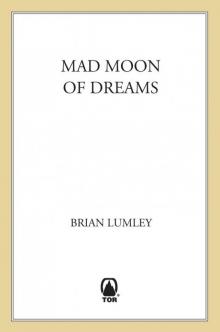 Mad Moon of Dreams
Mad Moon of Dreams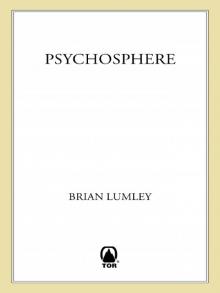 Psychosphere
Psychosphere Haggopian and Other Stories
Haggopian and Other Stories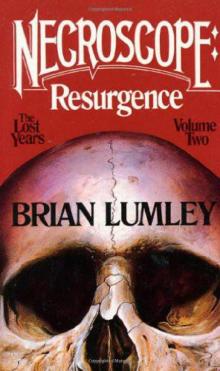 Resurgence_The Lost Years_Volume Two
Resurgence_The Lost Years_Volume Two Necroscope: Harry and the Pirates: And Other Tales From the Lost Years
Necroscope: Harry and the Pirates: And Other Tales From the Lost Years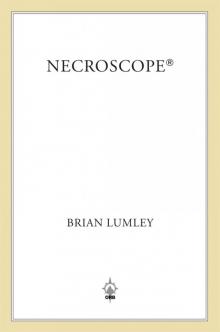 Necroscope®
Necroscope®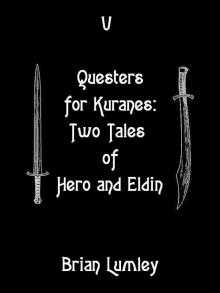 Dreamlands 5: Questers for Kuranes: Two Tales of Hero and Eldin
Dreamlands 5: Questers for Kuranes: Two Tales of Hero and Eldin The Taint and Other Novellas: Best Mythos Tales Volume 1
The Taint and Other Novellas: Best Mythos Tales Volume 1 Necroscope: Defilers
Necroscope: Defilers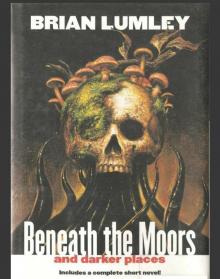 Beneath the Moors and Darker Places
Beneath the Moors and Darker Places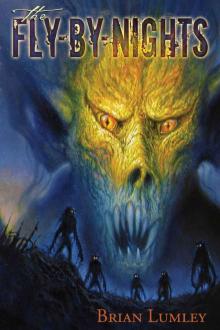 The Fly-By-Nights
The Fly-By-Nights Khai of Khem
Khai of Khem Ship of Dreams
Ship of Dreams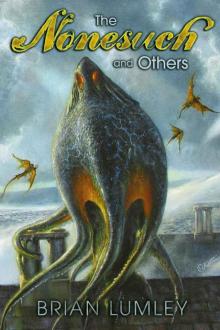 The Nonesuch and Others
The Nonesuch and Others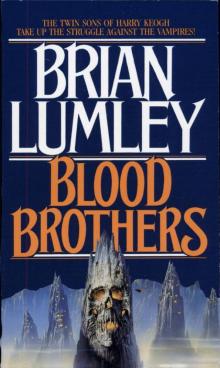 Blood Brothers
Blood Brothers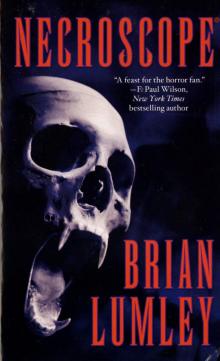 Necroscope
Necroscope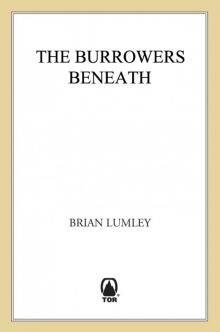 The Burrowers Beneath
The Burrowers Beneath Bloodwars
Bloodwars No Sharks in the Med and Other Stories
No Sharks in the Med and Other Stories The House of Doors - 01
The House of Doors - 01 Screaming Science Fiction
Screaming Science Fiction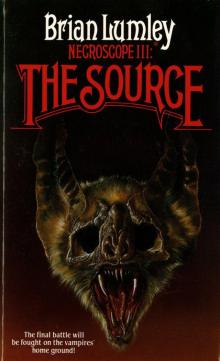 Necroscope III: The Source
Necroscope III: The Source Vampire World I: Blood Brothers
Vampire World I: Blood Brothers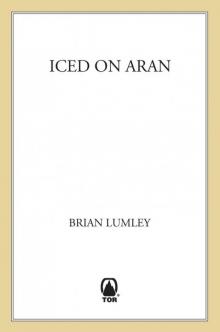 Iced on Aran
Iced on Aran Necroscope: Invaders
Necroscope: Invaders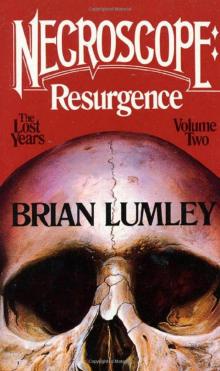 Necroscope: The Lost Years
Necroscope: The Lost Years Return of the Deep Ones: And Other Mythos Tales
Return of the Deep Ones: And Other Mythos Tales Necroscope V: Deadspawn
Necroscope V: Deadspawn Titus Crow, Volume 3: In the Moons of Borea, Elysia
Titus Crow, Volume 3: In the Moons of Borea, Elysia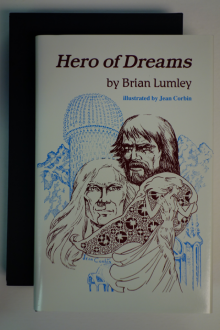 Hero of Dreams
Hero of Dreams Necroscope IV: Deadspeak
Necroscope IV: Deadspeak The Last Aerie
The Last Aerie The Second Wish and Other Exhalations
The Second Wish and Other Exhalations Necroscope: The Touch
Necroscope: The Touch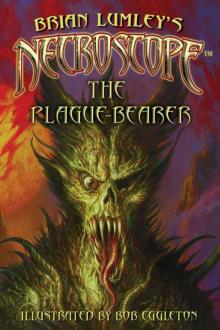 Necroscope: The Plague-Bearer
Necroscope: The Plague-Bearer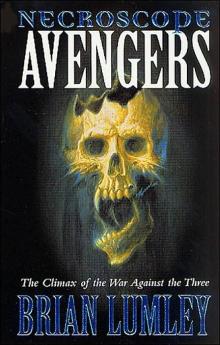 Necroscope: Avengers
Necroscope: Avengers Necroscope II: Wamphyri
Necroscope II: Wamphyri Necroscope II_Vamphyri!
Necroscope II_Vamphyri!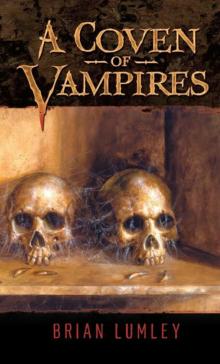 A Coven of Vampires
A Coven of Vampires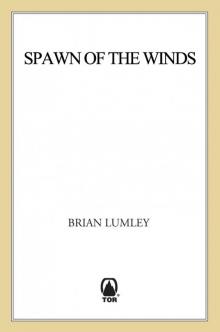 Spawn of the Winds
Spawn of the Winds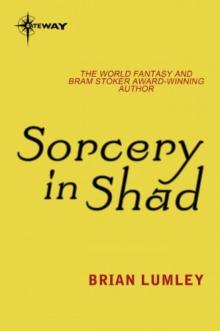 Sorcery in Shad
Sorcery in Shad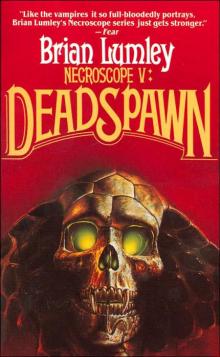 Deadspawn
Deadspawn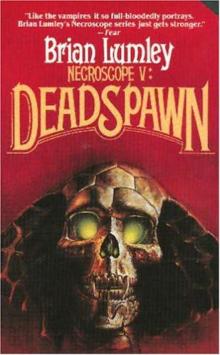 Necroscope V: Deadspawn n-5
Necroscope V: Deadspawn n-5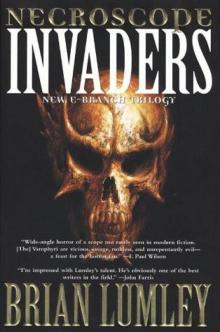 Necroscope: Invaders e-1
Necroscope: Invaders e-1![Beneath the Moors and Darker Places [SSC] Read online](http://i1.bookreadfree.com/i/03/20/beneath_the_moors_and_darker_places_ssc_preview.jpg) Beneath the Moors and Darker Places [SSC]
Beneath the Moors and Darker Places [SSC]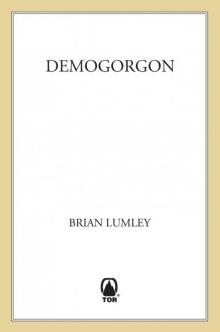 Demogorgon
Demogorgon Harry and the Pirates_and Other Tales from the Lost Years
Harry and the Pirates_and Other Tales from the Lost Years Necroscope IV: Deadspeak n-4
Necroscope IV: Deadspeak n-4 Deadspeak
Deadspeak The Taint and Other Novellas
The Taint and Other Novellas Blood Brothers vw-1
Blood Brothers vw-1 The Source n-3
The Source n-3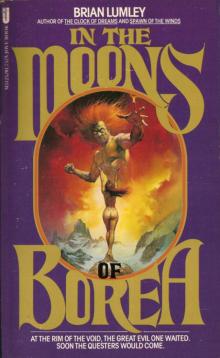 In the Moons of Borea
In the Moons of Borea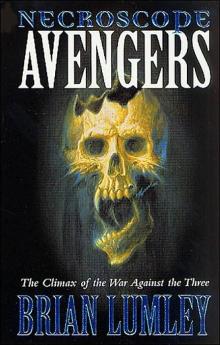 Avengers
Avengers Necroscope n-1
Necroscope n-1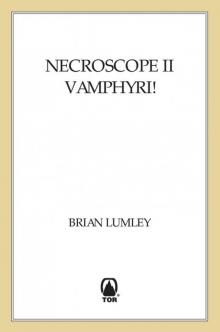 Vamphyri!
Vamphyri!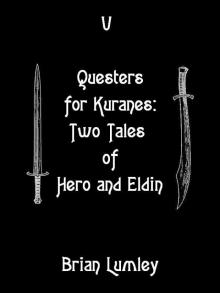 Questers for Kuranes: Two Tales of Hero and Eldin
Questers for Kuranes: Two Tales of Hero and Eldin Necroscope II: Wamphyri! n-2
Necroscope II: Wamphyri! n-2 The Source
The Source Elysia
Elysia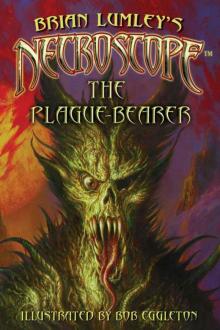 The Plague-Bearer
The Plague-Bearer The Touch
The Touch Invaders
Invaders Necroscope 4: Deadspeak
Necroscope 4: Deadspeak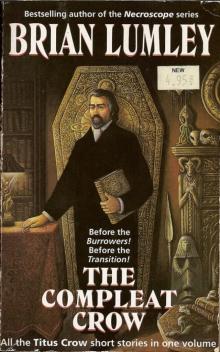 Compleat Crow
Compleat Crow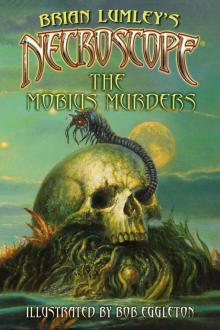 The Mobius Murders
The Mobius Murders Defilers
Defilers